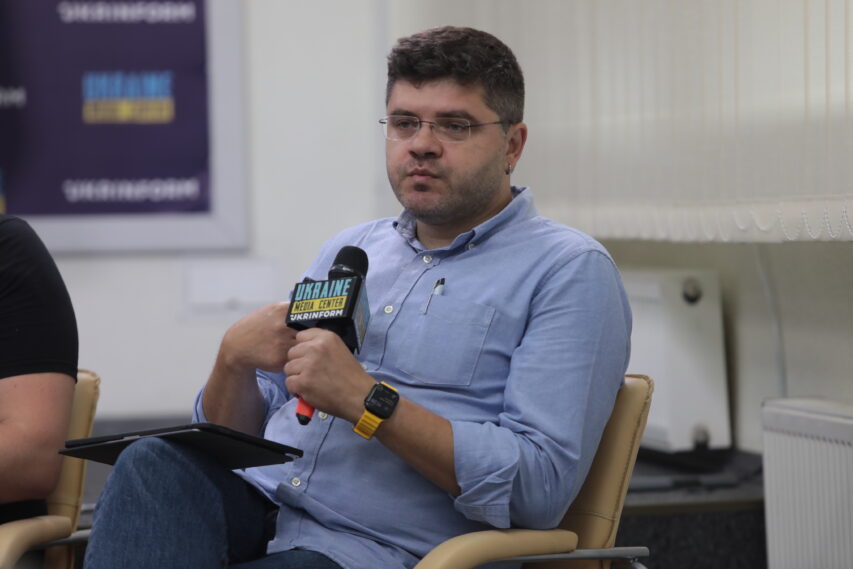
Fight against corruption: how this issue was covered in media and social networks
The majority of people form their understanding about the situation in the fight against corruption in Ukraine through the media. In February 2023, the topic of corruption was the second most covered in the media, thus essentially reaching the level of 2021. This was made possible by anti-corruption institutions that investigated cases, public activists that reported cases, and social media.
Roman Vybranovsky, media expert, representative of USAID SACCI, made this statement during the presentation of the results of the survey “Corruption through the Filter of Media” at the country’s main discussion platform BrainHub at Media Center Ukraine – Ukrinform.
“We can see that the United Telethon for some time tried to talk about corruption as something that has already been solved and tried to talk about the fact that Ukraine is working very hard to overcome corruption. (People on – Ed.) social media did not believe this – the United Telethon and the general media had to explain themselves. Thus, we are, again, back to the same level. That is, the request of the citizens was granted, one could have tried not to do something, but actually did not succeed. We can see this from the coverage statistics in general – at a certain stage, both in the media and in the Telethon, the subject of corruption took the second place,” he explained.
The media expert noted that if the media in general talk more about specific cases of corruption and that corruption is being fought with, then social networks contain much more general discussions and much more criticism. According to him, there is much more negativity in social media that nothing can be done, and this negativity, in addition to people’s comments in general, is caused by the presence of pro-russian activists and caused by the politics, of which there is a lot.
“And in fact, we have a situation where corruption is a problem that definitely needs to be cured, but if it is not treated on case-by-case basis, then criticism by the russians is added to it in social networks along with the political criticism, which we cannot do anything about,” he emphasized.
Roman Vybranovsky also noted that the topic of corruption in the media and social networks was very different. If in the media it was covered in a more positive light – the fight against corruption is a prerequisite for joining the EU, digitalization helps to fight corruption, then in social networks, on the contrary, it is more negative – fraud, bribery, the government is using the war, etc.
The media expert noted that mass media and social networks also differ in terms of who they are talking about.
“Anti-corruption institutions were also a target of criticism in social networks, mainly the NABU (National Anti-Corruption Bureau of Ukraine – Ed.), as well as the SAPO (Specialized Anti-Corruption Prosecutor’s Office – Ed.) and the SSU (Security Service of Ukraine – Ed.). Criticism of anti-corruption institutions in social networks was intensified by the presence of pro-russian narratives in social networks,” he added.
Roman Vybranovsky emphasized that the results of the poll on the coverage of corruption in the media will be handed over to all law enforcement agencies, all NGOs and media outlets so that in any subsequent campaign using sociological data and media monitoring data they will be more focused on meeting the people’s demand in the matters of the fight against corruption. And that both state institutions and NGOs pay attention to this.
BrainHub is the country’s main discussion platform created by Media Center Ukraine – Ukrinform. It brings together experts from the state and civil society sectors. BrainHub hosts intellectual discussions around the issues of the post-war reconstruction of Ukraine. It’s the birthplace of the best ideas that will become the foundation for the road map of Ukraine’s reconstruction in all sectors: economy, infrastructure, education, agriculture, security, digital, etc.
Read more: https://mediacenter.org.ua/news
 Back
Back 